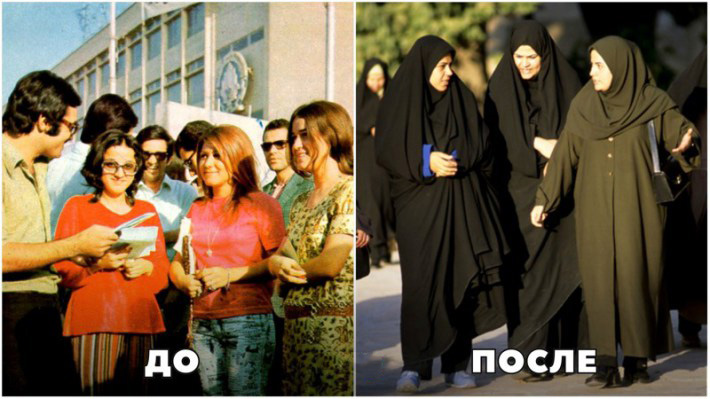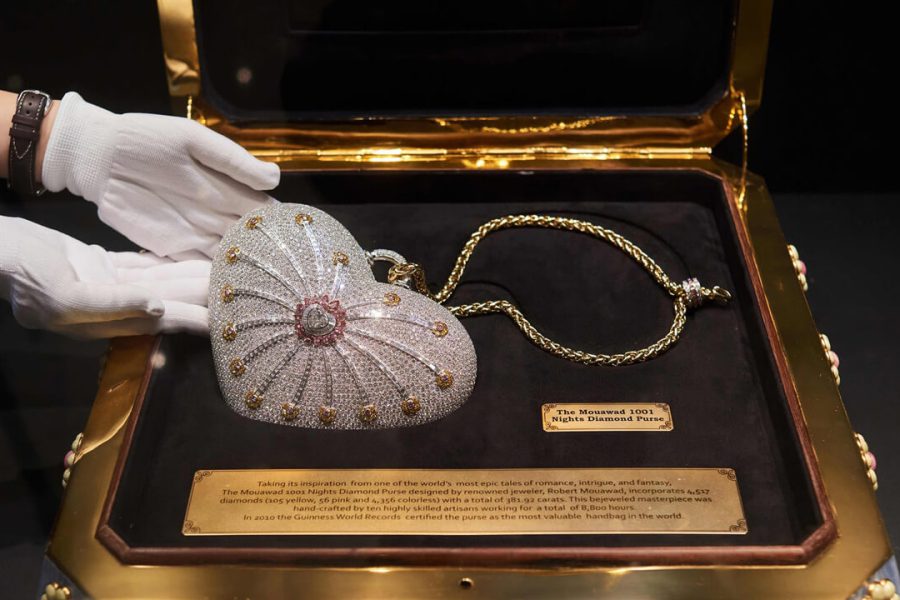In this article we will continue to travel around the countries and tell you 10 of the most interesting facts about Iran.
1. The territory of modern Iran was for a long time part of the Persian Empire, which was formed in the 5th century BC, and its borders, in its best times, stretched from Egypt to India. Debunking the myth about the Arabs inhabiting Iran, it should be emphasized that the majority of the population of this country are Persians who speak "Farsi", that is, the Persian language. The Islamization of the Persian state, and with it Iran, occurred in the 7th century, together with the arrival of the Arab invaders, before that the dominant religion was Zoroastrianism.

2. Iran deeply regulates women's behavior in society. Thus, every woman from the age of 9 is obliged to wear a "hijab" in public, this also applies to female tourists coming to the country. A woman is prohibited from working anywhere except at home, unless her husband gives her permission. There is a special partition for women and men in public transport. Women are prohibited from going out without being accompanied by a male family member. However, compared to Saudi Arabia, women are allowed to vote and drive in Iran.

3. Polygamy is allowed in Iran, with a maximum limit of 4 wives. Boys can marry at 15, and girls at 13. By the way, after marriage, girls lose the opportunity to study at university. You can participate in elections from the age of 15.

4. Before the Islamic Revolution of 1979, Iran was a secular, Western-oriented country. Iranians dressed like Europeans at the time, and were also very fond of American films and music. However, after the overthrow of Shah Mohammad Reza Pahveli, as a result of the revolution led by the representative of the Islamic clergy Ali Khamenei, Iran "transformed" itself in the direction of increasing conservatism and religiosity. By the way, American cinema is now banned here, as it is believed that it corrupts society.

5. It is generally accepted that the most expensive caviar in the world is black beluga caviar. However, this is not true. In Iran, they produce caviar from albino beluga, which lives off the coast of the Caspian Sea. The peculiarity is that albino beluga sturgeons begin to produce caviar only after 100 years of age. The caviar is golden in color and is called "Diamond". Due to its rarity, the cost of one 100-gram jar reaches 3,000 dollars. By the way, the jars in which it is packaged are made of pure gold.

6. For over 2,500 years, Iran has been making world-famous Persian carpets. An interesting fact is that when weaving a carpet, a mistake is deliberately allowed, as it is believed that only God does not make mistakes. After oil exports, the export of Persian carpets is considered the second source of income for the Iranian budget.

7. Same-sex relationships are illegal in Iran. However, Iran ranks second in the world in gender reassignment surgeries, behind only Thailand. The Iranian government not only does not prohibit such surgeries, but in some cases even finances them.

8. In Iran, the Internet is under strict censorship. All sites that can in any way threaten the government order are blocked. For example, opposition sites, sites publishing information about protests, women's rights and many others. Of the popular sites in Iran, access to YouTube, Wikipedia and Facebook is blocked. The Iranian government has repeatedly announced its intention to completely disconnect the country from the Internet and create its own intrastate network, however, this has not yet happened, since the infrastructure for this project is not yet ready.

9. Iran has the largest Jewish community in the Middle East, excluding Israel. They are legally guaranteed a seat in parliament, so Jews participate in Iran's political life. There are four state religions in this country: Islam, Christianity, Zoroastrianism, and Judaism.

10. If you are going to visit Iran, you should definitely know about a very interesting local tradition called "refusing money". The idea is that people can refuse to take money for work done, for example, when using taxi services, the driver can refuse to pay. However, not because he does not want to take the money. You should definitely insist that he should take it. Such are the traditions.













